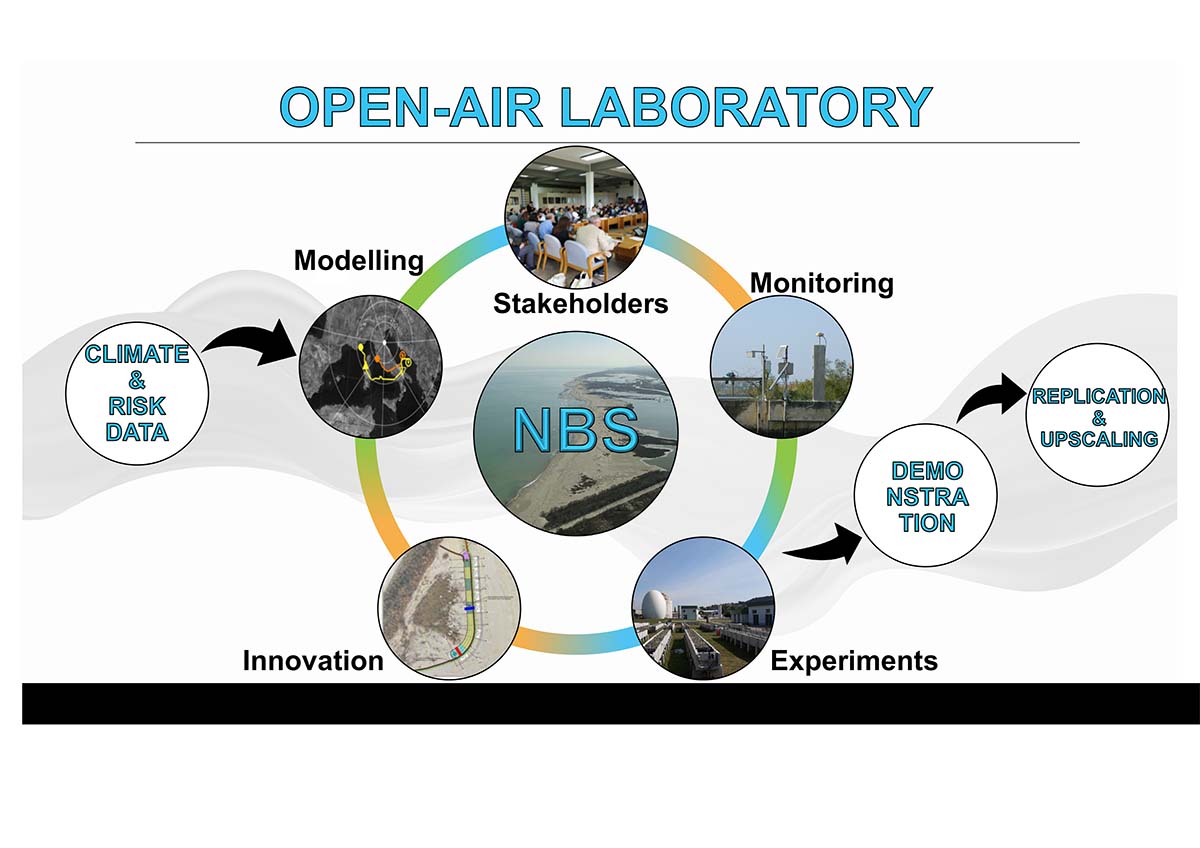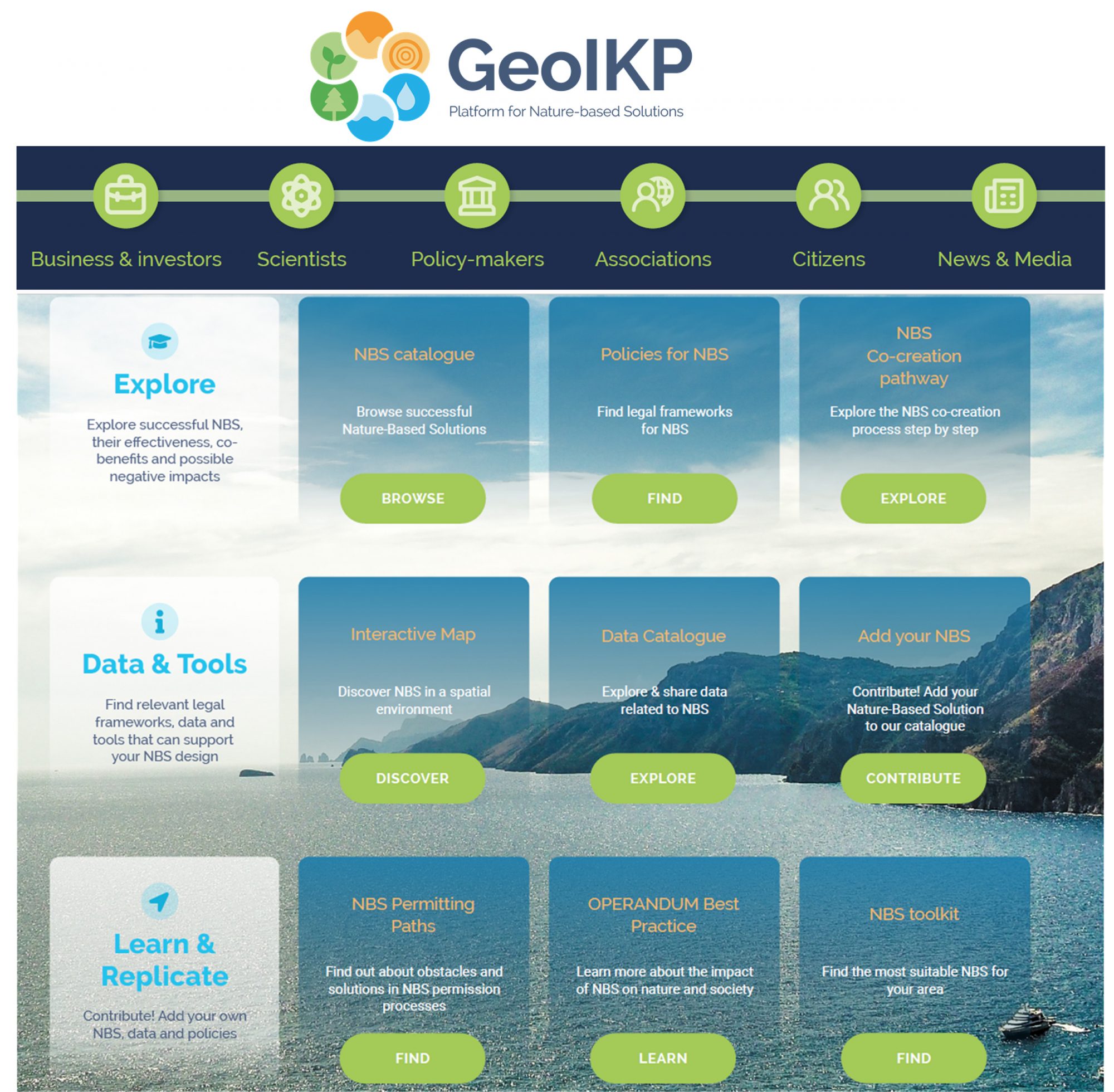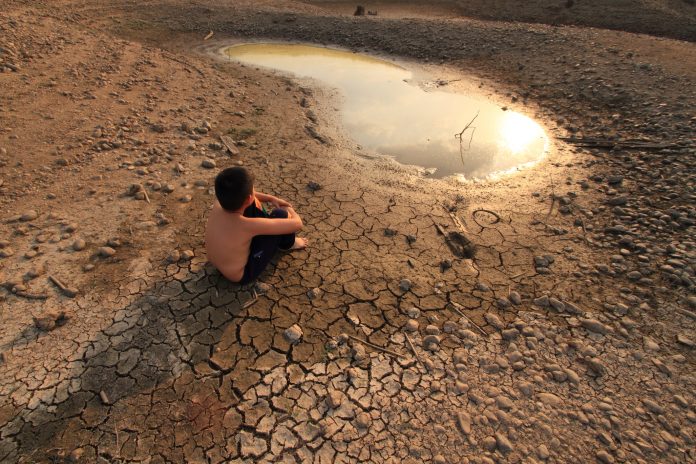Professor Silvana Di Sabatino, tells us about the H2020 funded OPERANDUM project as a nature-based solution for climate change adaptation
The OPERANDUM (OPEn-air laboRA-tories for Nature baseD solUtions to Manage hydro-meteorological risks) is a four and half year project funded by the European Commission within the H2020 programme that aims to demonstrate through the real-life implementation of solutions that are inspired by nature the so-called nature- based solutions (NBS) to mitigate the impact of extreme weather. Within OPERANDUM several hazards are studied such as river flooding, coastal erosion, shallow landslides, salt intrusion, droughts. The overarching idea of OPERANDUM is that nature-based solutions can be used in alternative to typical engineering design based on concrete to mitigate hazards driven by climatic conditions in the present and future years. At the core of the project, there is the set-up of laboratories (Open Air Laboratories) in several countries selected according to the specific hazard to be investigated in which different NBS are co-designed and implemented according to the local needs and tested through continuous monitoring and assessment. The overall objective of the project is to build a science-evidence protocol for the adoption of NBS according to hazards, climatic zones, cultural and economic settings in Europe and elsewhere.
OAL as instrumental for co-design and co-development of NBS
The Open-Air Laboratory (OAL) is a novel concept developed by OPERANDUM to co-design and implement NBS. It generalises the Living Lab approach to the application of NBS to mitigate hydro-meteorological risks in a rural environment. An OAL is a trans-disciplinary framework (see Figure 1) where scientists work together with companies, government agencies, citizens, practitioners and decision-makers.
The NBSs are implemented via a co-creation approach that harmonizes impact modelling, monitoring protocols and laboratory experiments. The OAL operationalises an ongoing transition of climate science into a bottom-up approach that, when addressing climate change adaptation, starts from local stakeholders and aims at providing climate-related information that is relevant at the local scale. The final product, i.e. a methodology for the evidence-based assessment of the efficacy of the NBS, straddles the line between science and society, touching both scientific and socio-economic aspects of the process and enabling replication and upscaling of the intervention.

Example of successful implementation of an NBS: Deep-rooted vegetation on a riverbank in the OAL-Italy
An insightful example of a successful NBS, in OAL-Italy, is a dense vegetation cover using a mixture of twelve deep rooting perennial herbaceous species on an earth embankment of the Parano River, Italy. The site is in a populated area with industrial and agricultural activities and is threatened by a high risk of flooding associated with soil erosion on the riverbank. The NBS was co-designed with local stakeholders to prevent riverbank failure induced by erosive processes and soil instability (see figure 2) and therefore mitigate flood risk. Laboratory experiments in a recirculating, tilting hydraulic flume demonstrated the efficacy of the plants to hamper the erosive process. The NBS was then implemented in the site where soil conditions are continuously monitored by a series of sensors that measure soil water content, matric suction and pore water pressure. Hydrological and hydraulic modelling have quantified the efficacy of the NBS to mitigate flood risk in present and future climate.

GeoIKP – A user-driven platform to share and find information on NBS
One of the key outcomes of OPERANDUM is the newly released web platform on nature-based solutions called GeoIKP (Geospatial Information Know- ledge Platform). The platform is open and offers customized interfaces and tools/services tailored to six different user categories, such as policy-makers looking for legislation frameworks or private business companies searching for partners, clients and funding opportunities and scientists looking for NBS research data; citizens or local communities interested in grassroots solutions to climate change. The user-friendly and flexible interface of GeoIKP caters to both advanced users with a professional interest as well as first-time visitors without any prior knowledge of nature-based solutions. For example, the newly launched Citizen Stories of GeoIKP gives a voice to vulnerable, affected or concerned citizens to share personal experiences of how and why they started applying nature-based solutions to their areas, and to inspire others to take action. It also offers more advanced functionalities such as an NBS pre-assessment toolkit and an interactive WebGIS map where the user can visualize data and statistics on a variety of thematic areas of relevance for NBS and even create downloadable maps in real-time. Other examples of tools offered in GeoIKP are summarized in Figure 3.

The lower part of the image represents the platform homepage customized for one of the six user profiles (scientists and knowledge organizations) as it will appear in the official release of GeoIKP in January 2022.
The platform is going to be officially launched in January 2022, but a prototype with most of the aforementioned functionalities already in place is presently available and freely accessible at https://geoikp.operandum-project.eu. Tutorial materials and webinars are accessible at links [1,2]
[1]https://kajo.atlassian.net/wiki/spaces/OPE/pages/1475543042/GeoIKP+user+guide
[2]https://www.youtube.com/watch?v=XNKALUIEjes&t=104s

Please note: This is a commercial profile
© 2019. This work is licensed under CC-BY-NC-ND.











